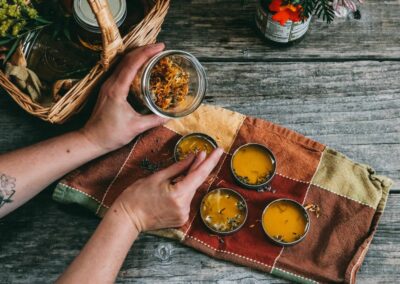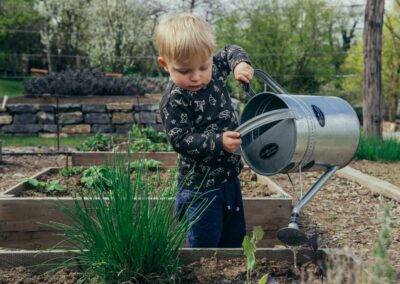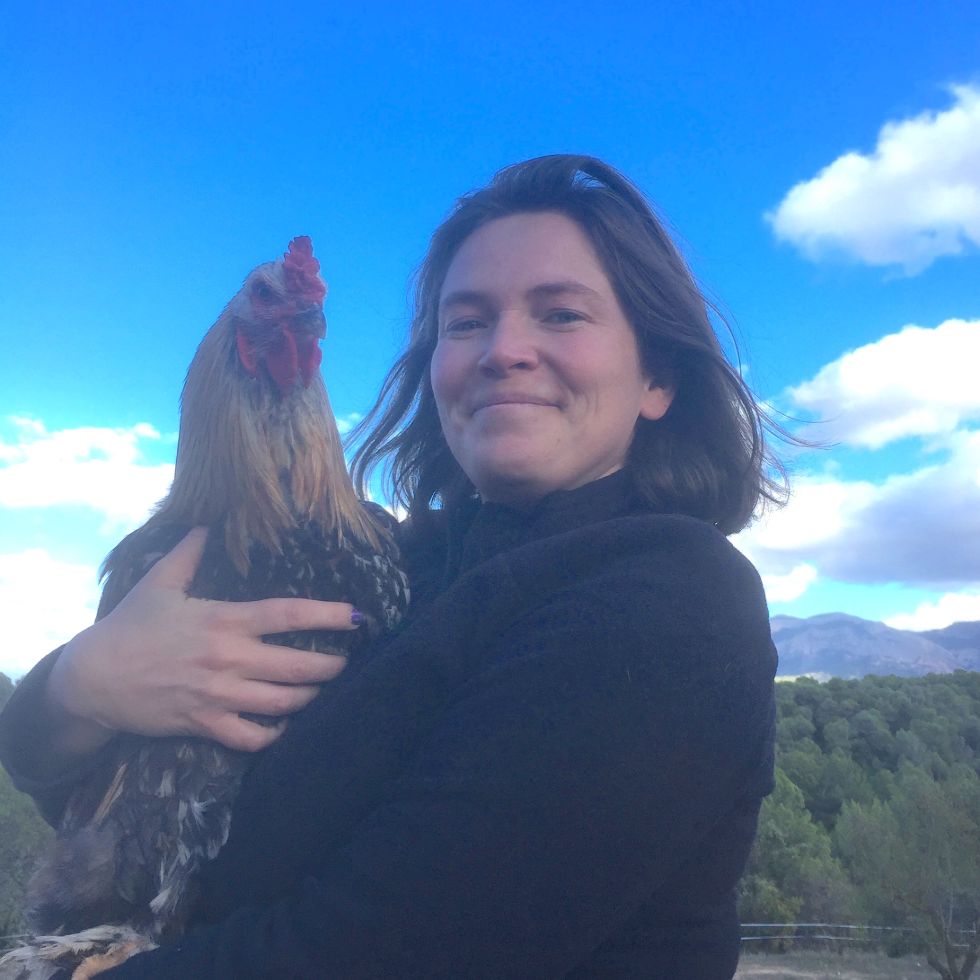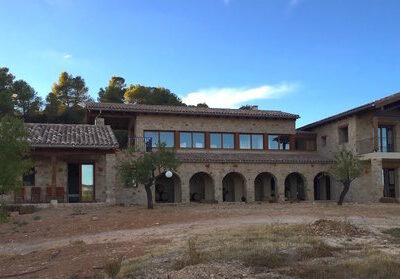Simple living is all about simplifying your life. Sounds easy? It isn’t, as I’ve demonstrated before (in There’s Nothing More Complicated than a Simple Life). This time, I’m going over the many different aspects of simple living – most of them will barely scratch the surface (maybe they can be starting points for one of my next posts, who knows).
But what is leading a simple life about, really?
Simple Living Means Putting What’s Important First
Happiness
The first stop in the quest for a simple life is the search for a happy life. If you’d like to know more about it, I’d wholeheartedly recommend Gretchen Rubin’s “The Happiness Project”. It’s a great read that will give you more insight into the concept of happiness, and how you can do little things to become happier, too. Gretchen Rubin has become quite the happiness expert after writing this and has written more good books about becoming a happier person and changing habits.
For me, the main takeaway of the book was that happiness is not a goal to work towards – a happy life is in the journey, in the little things we do every day. From enjoying the little things to taking some time to breathe in between all the chaos and craziness; for some, it can be found in God or Allah or the teachings of Buddha – for others, it’s about looking inwards, meditating, or making music. Whatever rocks your boat, happiness is not an achievement – it’s an everyday thing.
Living a simple life is about finding that “happy path”. Doing things we enjoy every day, and taking care of ourselves first.
Health
We often don’t realize how much our happiness is linked to our personal health or that of our family members. Our health is affected by so many factors: eating well (fresh, seasonal, and organic food), breathing in the fresh air, getting quality sleep, doing physical exercise every day, and taking care of our body and skin. When we aim for a healthy mind in a healthy body, I believe we’ve got one of the keys to a happy life.
Living a simple life is taking care of ourselves first – making sure we’re happy and healthy before we start taking care of others.
Family And Relationships
For most of us, family and relationships are the pillars of a happy, simple life. Those of us with children often put them first in every situation. Those of us in a relationship realize that working on it every day is not easy, but necessary in order to keep it working. We want our parents to be healthy, happy, and well taken care of – especially if they’re getting older and no longer able to do everything themselves.
Living a simple life is about putting these relationships on a pedestal, putting time and effort into them in order to really make them work.
For people with children, simple living might mean cutting down on paid work in order to spend more time with them. It might mean putting more time into their education – taking them to museums and on holidays, but also teaching them how to cook, clean, garden, and take good care of themselves. In some cases, it might even mean homeschooling them – teaching them everything they would learn at school, and then some.
Community
Community is an often-forgotten aspect of leading a simple life. Having good and caring neighbors, friends you can call upon in your time of need, reliable coworkers and friendly acquaintances – they can make life so much easier to bear, and much of it is in your hands. I’m a big believer in karma; what goes around, comes around in some way or another. If I smile and say hello to strangers, I can brighten up their day so why wouldn’t I? When I offer to help out, most people will appreciate it and be there for me when they can. And if there’s stuff I don’t need, I can as well give it away to somebody who does – it makes me feel a whole lot better than putting it in the bin.
Little side note here – I’m a big believer in karma but have an even bigger aversion to people who are not honest about their expectations. If you offer to help your neighbor move, don’t be annoyed when he accepts your offer. If you have guests over who don’t invite you back, just don’t invite them again. And if you tell people you don’t want money for your product or service (or they can pay you what they think it’s worth), don’t be disappointed if you don’t get as much as you hoped for… you could have asked them for a fixed price in the first place. Or could have used marketing tricks to get the price you wanted for it while letting them think it was voluntary, of course 😉
What’s Important To You Vs. What Needs To Be Done
“What’s important” is not (always) the same as “what you feel like doing”. You might not feel like doing the dishes, but it’s important to do this anyway as keeping moldy leftovers on your counter are just not good for your health. You may not feel like keeping track of your money is important, but spending it carelessly can lead you into dire straits.
However, we often get caught up in things we think “need to be done” or we think we don’t have a choice; it’s often good to take some distance, seek advice, talk to a good friend, or even get professional help. This can help you get more clarity into your life, your wants, your needs, and the options you actually have in life.
Simple Living Means Changing Your Views On Time Management
In our busy busy lives, time management is all about managing our to-do lists, making sure we find a little room in our schedules to do everything we need to do, and making sure we get home in time for dinner (or to read “Where’s My Cow” to little Sam).
When we simplify our life, we try to define what’s important and make more time for that – leaving little space for anything else.
It’s ok to cancel on your girlfriends because your baby is sick and needs some mama love. It’s ok to spend your day doing absolutely nothing productive when it’s that time of the month (your body and mind will love you for it). It’s just as ok to work from sunrise till sundown on a project that makes your heart skip a beat – or to drop everything to go help out a friend in need.
Simple living is all about changing your mindset; it’s about achieving a state of mind in which things you find important are worthy of your time – and others are not.
Simple Living And Homemaking
To my surprise, homemaking turns out to be a very important part of living a simple life. Now I’m no model housewife; I don’t hate cleaning, but there are so many more fun things to do in life!
Since I’m quite chaotic and don’t exactly have the most cooperative husband, a good thorough house-cleaning used to mean the day after, my house would look like it just exploded again. As the media tells me I’m a “modern woman” and my partner should do just as much of the housework as I do, I lost years of my life trying to teach him how to clean. It’s not like I achieved nothing, but telling him to tidy up first (and clean when the room is neat and tidy) is like telling him aliens came and ate the cheese. He smiles and says “Yes of course”, but you just know it’s not registering.
When we came to live here, I realized there were things he could do that I just couldn’t or wouldn’t (many of them involved heavy lifting and machinery) – so he’d do that while I cleaned the house. Still a bit grudgingly (I’ve got other things to do, I hear my garden calling) but still, I’ll be the housewife and you’ll be the resident handyman. You Tarzan, me Jane.
And then I discovered Amy Fewell and her homemaking series on Youtube. And a few weeks ago, her post about the lost skill of serving your family. If you’re not religious it might take a bit of effort to get over the God-talk – but it made me realize how lucky I was to actually have a wonderful husband to share this adventure with, and how much less of a burden the whole homemaking thing was if I decided it was the way to make my house a home.
These days I really don’t mind the uber-traditional gender role I’ve taken on – we all have to do what we do best, and I’m definitely a lot better at it than my husband! And my house is not only looking better, it’s starting to feel much more like a home (and it takes me a lot less time and effort to clean too).
Many people associate simple living with decluttering and minimalism, and they definitely have a point. Getting rid of superfluous stuff makes extra space in my house, my closet, and my mind. And if I’m lucky enough to sell the stuff I don’t need, I’ve got extra money to do fun things with. What’s not to love?
Minimalism takes it one step further. I’ve read Marie Kondo’s “Life-Changing Magic of Tidying Up” about her “KonMari” method of throwing away as much as you possibly can… just not sure I can go that far. Pretty sure I don’t want to. It’s a pretty fascinating read anyway though, and makes you think of “stuff” in a different way.
Simple Living And Mindfulness
Full disclosure: I really suck at mindfulness. While other people in yoga class meditate, I’ll be the one going over tomorrow’s planning or interesting topics for my next blog post (too bad I can’t write it down at that moment, I forget most of those).
However, making the switch to a simple life has everything to do with mindfulness – appreciating what’s happening right now instead of fearing what could happen tomorrow.
When I’m in the garden, I might still be stressing about that thing my friend said to me the other day – but mainly, I’m planting potatoes, or making sure I don’t cut off my fingers instead of an almond branch.
Simple living is about dealing with stress by not dealing with it – by organizing things in such a way there’s just not so much to stress about. Doing yoga is a wonderful way to get rid of bad thoughts – while you’re concentrating on your breathing and assuming the right position, there’s no space in your mind for the laundry or next week’s double booking. Yoga is awesome to get rid of the little physical pains of daily life on the farm as well (but that is a tale for another time).
Taking the path towards a simple life makes us think more about what’s really important – a new friend recently told me she wasn’t going to “let the perfect get in the way of the good”… and I’ve been trying to assimilate that thought for the past few weeks. What I do might not be perfect, but it’s done with love and dedication so you can either take it or leave it!
Simple Living And Going Back To Basics
To many (us as well, to a certain extent) simple living is a synonym of going back to basics.
Self-Sufficiency
Building, making, and growing things yourself. If something needs to be done, we’ll look it up and try to do it ourselves – without big machinery or exotic ingredients. The satisfaction you can get from making something with your own bare hands is worth hundreds of hours of retail therapy!
I said “To a certain extent” – we’re very happy to have a friend with a tractor when we need dozens of branches turned into wood chips, and I wouldn’t want to run this household and our bed & breakfast without a washing machine and a dishwasher!
Still, it feels so good to eat food from our own garden instead of something that was most likely produced on another continent with the help of chemicals that make the locals sick (but that are perfectly fine for us to eat, of course). We don’t eat meat every day but when we do, we much prefer to eat a rooster who lived a happy life eating bugs and scratching the grass, rather than one with a cut-off beak that was shat on for several weeks and fed arsenic to fatten up before finally being released from the factory and unto our plates. (disclosure: we’re not producing 100% of our own food year-round. We try to procure our food from ethical, local, and organic sources… but we still like to eat at a restaurant sometimes or get some variation in our food).
One of my favorite books is one I got for my birthday a few years ago; it’s called “Back to Basics” and covers (almost) everything you’d ever need (or want) to know about traditional skills. From building a house to butchering a chicken, from knitting to gardening, from making fire to building your own power station,… if the world ever comes to an end, that’s the one book I’d take with me to the hills in order to restart civilization 🙂
Going back to basics is about taking responsibility for our own lives. So far, most of our lives have been about making choices that fit other people’s or companies’ agendas. Choosing school A or B, career option 1 or 2, working for company X or Y, and getting cable television from ATV or BTV; these are not real choices, more like options within a very narrow path of expectations from the outside world.
Switching to a simple life (and just as importantly, moving off the grid) has allowed us to take responsibility. From now on, we take care of our own needs – or at least, we make conscious decisions about them. We still love the fact that we live in a society where almost everybody is taken care of to a certain extent and we’re happy to pay our taxes so the government fixes the roads and makes sure hospitals stay staffed – but we’re now our own boss and decide what happens on our own piece of land. All with the right permits, of course.
Does “Simple Living” Mean You Have To Move Away?
Making the transition to a simple life is often associated with moving (far) away, moving to another country, or even moving off the grid. We did all three of them.
If you live in a place where life is not too expensive, not too stressful, and has reasonable access to fresh air, healthy food, sunlight, and nice people – then, by all means, stay where you are.
The way I see it (let me know in the comments if you disagree!), it’s not possible to really live a simple life when living in a tiny city apartment. Cities are big and impersonal, city lights obstruct your natural sleep cycle (and so do blinds), fresh air and (real) organic and ethically grown food are hard to find, and it’s so tempting to be busy-busy-busy when everybody around you is.
The fortune you are spending on city living would earn you a very comfortable life in the countryside… although in that case, you’d probably have to let go of the source of said fortune (your job). However, if one door closes another will open; the idea to hold on to your job has maybe kept you from discovering hidden talents. There are so many things you can do to earn money from the comfort of your own home – all it takes is dedication, inspiration, a bit of talent, and good marketing. Yes, you can!
Unjobbing
Unjobbing is a trend that has its merits and its downsides; it means you get to work for yourself, your family, and your future – but it often means you lose your secure and reliable income. You have to decide for yourself which is most important at this time of your life; you can switch (back) any time though.
Unjobbing means liberating yourself from a job that has little meaning to you and that doesn’t make you happy, but that takes up most of your life. It can mean scaling back to a part-time job (maybe one you can do from home?), it can mean starting your own business – in extreme cases, it can also mean you let go of the idea of a job altogether and just work on your land, your house, your future.
Unjobbing is related to the idea that “work” is an unnecessary construct of modern life, as in older times (and current primitive cultures) there is no such thing as “work”… there’s just life. Like this piece on Return to Now argues, many people don’t have a concept of paid work. There are things that need to be done in order to survive, things to be done in order to help the community thrive, and a lot of fun to be had in between. The article mainly talks about primitive cultures, but it can easily be translated into our simple lives; we need to build things, prune and plant and harvest or go shopping; we can help out and support our friends or work on a common project; in between, we can do anything we like. For me, that’s writing; for my husband, it’s building stuff. What is the thing that makes you happy?
Unjobbing is what we did: I started my own company (as a personal assistant) when we still lived in Amsterdam, and my husband let go of his well-paid job to become a farmer when we moved to Spain. Oh yes, and we’ve got a tiny bed & breakfast that is mostly fun to manage. Can we make ends meet? Barely. Are we happy? Incredibly. And that’s what counts.
Read More?
I love these 72 ideas to simplify our lives. Many of these really work (we haven’t tried the rest yet…)
Others:
“The Happiness Project” by Gretchen Rubin – Amazon.com – Amazon.co.uk – Amazon.es – bol.com
“Where’s My Cow” by Terry Pratchett – Amazon.com – Amazon.co.uk – Amazon.es – bol.com
“The Life-Changing Magic of Tidying Up” by Marie Kondo – Amazon.com – Amazon.co.uk – Amazon.es – bol.com
“Back to Basics” by Abigail R. Gehring – Amazon.com – Amazon.co.uk – Amazon.es – bol.com













0 Comments